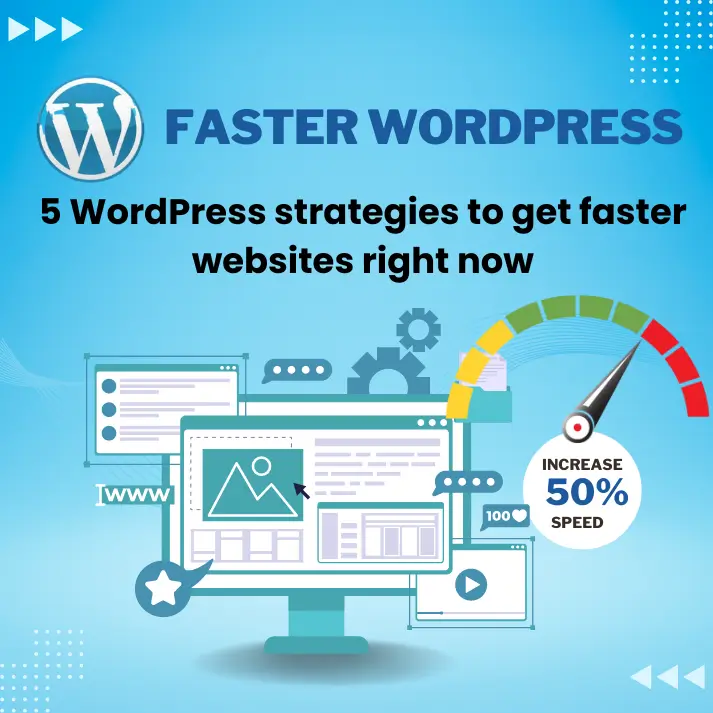In today’s digital landscape, website speed plays a crucial role in user experience, SEO rankings, and overall online success. Slow-loading websites not only frustrate visitors but also negatively impact search engine visibility. For WordPress users, optimizing website speed is essential to keep users engaged and improve performance. Here are 5 effective strategies to boost your WordPress site’s speed and deliver a seamless experience to your visitors.
1. Choose a Lightweight Theme
The theme you use significantly impacts your website’s loading speed. While many WordPress themes come packed with features and high-quality visuals, these extras can bloat your site, slowing down load times. Instead, opt for a lightweight theme that prioritizes speed.
Tips:
- Choose themes like GeneratePress or Astra that are optimized for performance.
- Avoid themes that come with excessive sliders, animations, and widgets.
- Regularly update your theme to ensure compatibility with the latest WordPress version.
2. Optimize Images
Large image files are one of the biggest culprits of slow websites. Optimizing images before uploading them can significantly reduce load times. Use image compression tools or plugins that minimize the file size without compromising quality.
Tips:
- Use plugins like Smush or ShortPixel to automatically compress images.
- Choose the right format: JPEG for photographs, PNG for logos or images with transparency.
- Implement lazy loading to delay the loading of images that are not visible on the screen.
3. Enable Caching
Caching is a powerful tool to boost website speed by storing static versions of your pages and serving them to visitors, reducing the need to load the page fully each time. This helps minimize server requests and enhances user experience.
Tips:
- Use caching plugins like W3 Total Cache or WP Super Cache to automatically handle caching.
- Enable browser caching to store site resources like images, CSS, and JavaScript in the visitor’s browser.
- Implement object caching to store database query results.
4. Minimize CSS, JavaScript, and HTML
Excessive CSS, JavaScript, and HTML files can slow down your website. By minimizing and combining these files, you can reduce the size of each page and speed up loading times.
Tips:
- Use plugins like Autoptimize or Fast Velocity Minify to combine and minify your CSS, JavaScript, and HTML files.
- Defer JavaScript loading to allow content to load first, followed by JavaScript.
- Remove unnecessary scripts and styles from pages where they’re not needed.
5. Use a Content Delivery Network (CDN)
A Content Delivery Network (CDN) stores copies of your website’s content across multiple servers in different geographic locations. When a user visits your site, the CDN serves the content from the server closest to their location, reducing latency and speeding up load times.
Tips:
- Use popular CDN services like Cloudflare, KeyCDN, or StackPath.
- Integrate the CDN with your caching plugin for a seamless experience.
- Monitor CDN performance regularly to ensure optimal results.
Bonus: Regularly Clean Up Your Database
Over time, your WordPress database can become bloated with unnecessary data such as post revisions, spam comments, and outdated transients. Regularly cleaning your database can improve website performance.
Tips:
- Use plugins like WP-Optimize to clean up your database.
- Delete unused themes and plugins to reduce database size.
- Schedule regular cleanups to keep your database lean and efficient.
Website speed is vital for both user satisfaction and SEO success. By implementing these five WordPress strategies—choosing a lightweight theme, optimizing images, enabling caching, minimizing code, and using a CDN—you can dramatically improve your site’s performance. As you continue to refine your website, focus on regular maintenance and updates to ensure your site remains fast, efficient, and user-friendly.

